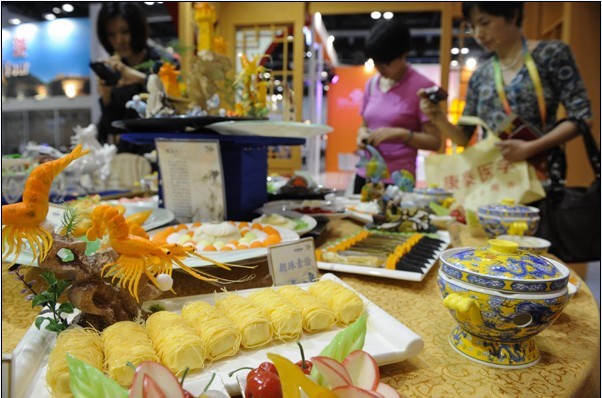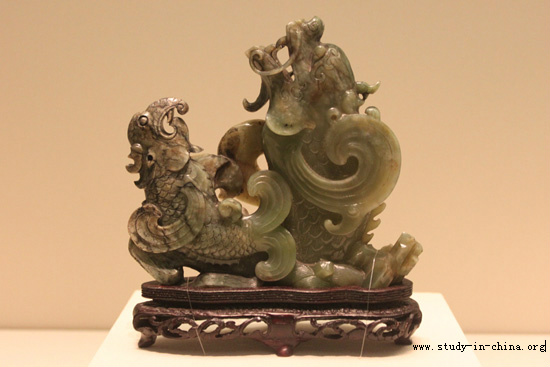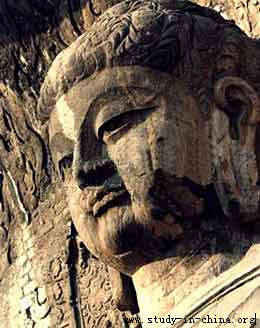| Home > China Feature |
Cao Cao - Famous Person during the Three Kingdoms Period
A figure wearing white mask in traditional Chinese Peking Opera, conventionally, is treacherous and brutal. Cao Cao, a historic figure, is bestowed with such negative features on the stage due to the unfavorable remarks on his morality given in the classic historical novel The Romance of Three Kingdoms which represents orthodox feudalism. In fact, Cao Cao has been praised as “a brilliant ruler, military genius and great poet” in the history.

Cao Cao was born in the year of 155 and died in 220. Born into an aristocratic family, he immersed himself in literature classics in early age and later the young man with high ambitions became an official to display unusual capabilities.
The last years of the Eastern Han Dynasty (25-220 A.D.) witnessed a chaos of corrupt politics, drooping economy and warlords tearing the territory to shreds, which put the imperial reign on the edge of collapse. At this critical time, various kinds of political forces emerged and fiercely fought with each other to amplify their own power in every possible way to grab the sovereignty. Weak at first, Cao Cao’s power grew stronger thanks to his proper appointment of talented people and far-sighted conduct of supporting agriculture in the war when common people became homeless and land fell desolate. Later, he defeated several more powerful warlord groups and unified North China. Following his counselor’s advice, he then moved the capital from Luoyang to Xuchang and managed to put the last Emperor Xian of Han under control. Cao Cao entitled himself as Duke of Wei and the Chancellor of the dynasty, who owned the political advantage of “holding the Emperor to control his state”. Having solidifying the northern base, he proceeded by going down to the south to strike Shu and Wu kingdoms in the hope of unifying the whole country. The three political groups, Wei, Shu, and Wu, fell into stalemate after Wei’s thorough failure in the Battle of Chibi. Nevertheless, Wei, headed by Cao Cao, still posed a grave threat to the other two kingdoms because of its broad territory, powerful military force and rich provisions. The favorable situation for Wei was closely linked to Cao Cao’s elaborate operation. Ultimately, the tripartite confrontation came to the end when the mighty Wei defeated Shu and Wu and China realized the reunification.
Cao Cao boasted great vision in military strategy and was conversant with Art of War. During the north-unification drive, he commanded many battles in which his army crushed the more numerous and more powerful troops, and the Battle of Guandu became the classic example. Cao Cao controlled the military force with tight regulations and made use of the tactics in an amazing speed, leaving several events a legend. Also crowned as a brilliant poet in the history of Chinese literature, Cao had made the poems with imposing vigor and boldness, which related to his life-time experience of campaigning across the country and grand political ambitions. He and his two sons Cao Pi and Cao Zhi were entitled “Three Caos” owing to their contributions to the Chinese literature. This was a pioneering act in the literature circle of that generation.
Art
 more
moreChina Beijing International Diet ...
Recently, The hit CCTV documentary, A Bite of China, shown at 10:40 ...

Exhibition of Ancient Chinese Jad...
At least 8,000 years ago, Chinese ancestors discovered a beautiful...

Longmen Grottoes
The Longmen Grottoes, located near Luoyang, Henan Province, are a tr...

Custom
 more
more




 print
print  email
email  Favorite
Favorite  Transtlate
Transtlate 







